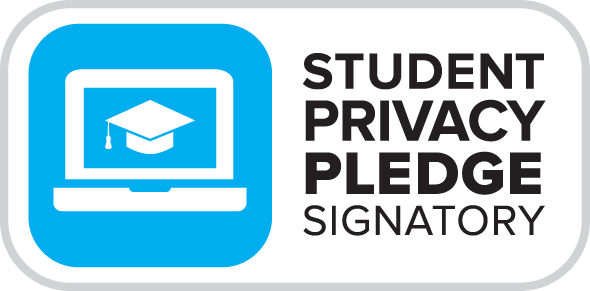Premium Group

A “Classroom” purchased includes an Account Administrator, 1 or 2 Instructor Logins, 10/30 Student Logins, and 20/60 Parent/Guardian logins that can be used in school, at home, or in coordination with other support systems such as school counselors.
The program is primarily designed for general education grades K-3 but the
material’s flexibility and focus on basic skill-building have allowed it to be easily
scaffolded for other grades and used by educators in more than 38,000
Special Education Classrooms.
No teacher training is necessary although it is provided in our Teacher Guide,
How To videos, or by request.
Premium Group Accounts include all aspects of the Premium Single User Accounts
plus add complete Administrative capabilities through an Admin panel.
BEST FOR
- Teachers, School Districts, School Counselors, School-Based Health Centers, After School Programs, Summer Programs who want Instructor accounts and want to provide Student Logins that can be used in class and from home. Also for schools wanting to increase school-to-home communication.
- For children ages 4 - 11, however, the multi-modal approach supports learners of different ages
PREMIUM GROUP ACCOUNT OVERVIEW
The Emotional ABCs Group Account is a skill-building curriculum for teaching foundational emotional tools to young children. It provides full curriculum access plus Administration capabilities, access for an Account Administrator, 1 or 2 Instructors, 10/30 Students, and 20/60 Parents/Guardians per virtual classroom.
- EDUCATORS:
(* This is the same Educator curriculum as found in the Premium Single User Account)
Each Educator has access to a 3-year curriculum of Workshops complete with resources and a framework for teaching Self-Awareness, Social Awareness, Self-Regulation, Responsible Decision-Making, and Relationship Skills. The curriculum uses pedagogical best practices for skill-building and is designed - in language, activities, and style - to engage young children. - ADMINISTRATORS:
Full Admin panel to allocate Emotional ABCs accounts to classrooms, educators, and students. - STUDENTS:
Includes 10 or 30 individual student logins per classroom for individual practice in the classroom or one-on-one instruction with an Educator or School Counselor. - PARENTS/CAREGIVERS:
Includes 20 or 60 Parent/Caregiver at-home logins so students can independently practice skills in the home and facilitates school-to-home communication on social-emotional skills.
EMOTIONAL ABCS PROGRAMS GOALS
Year 1
- Establish foundational emotional skills in all SEL categories, with particular emphasis on Self Awareness, Emotion Regulation, and Responsible Decision Making.
- Develop emotional language and ability to recognize and communicate emotions.
- Establish common emotional language for school and home, and the usage of the Emotional ABCs Toolbar as a process to manage emotions to make thoughtful, independent decisions.
Year 2
- Increased emphasis on Social Awareness and use of the Social Toolbar and Responsible Decision-Making.
- Developing more advanced emotional communication skills.
- Use visualization and self-assessments to strengthen personal growth‑mindset.
- Use reframing and persistence techniques to develop a consistent way to handle setbacks.
Year 3
- Emphasis on personal strengths and Relationship Skills.
- Develop a student’s techniques to positively influence communities and help others, including empathy and inclusivity tools.
- Continue to strengthen forward-thinking growth‑mindset and personal goal‑setting.
Long Term
- Foundational emotional and social skills lead to abilities to thoughtfully and independently respond to emotionally challenging situations.
- Prepares a young child with strong Self-Awareness and Self-Regulation skills so they are fully ready to take on more complex situations involving social situations, group dynamics, and nuances of relationships.
- Establish ability to envision a positive future for themselves and their communities and to recognize their personal ability to have a positive impact on their environment.
ESSENTIAL COMPONENTS
Engaging, imaginative resources in a structured curriculum. The Premium Group Account includes all Single User Account resources plus Admin capabilities.
Admin
- Each classroom includes 1 or 2 Educator accounts, 10/30 Student logins, and 20/60 Parent/Caregiver logins from the home.
- Administrator uses Admin panel to assign Educator accounts, create Classrooms, assign Student accounts if applicable.
- Ability to assign and reassign logins.
- Ability to assign school counselor accounts for schoolwide implementation.
- Ability to create flexible grouping to accommodate various needs such as after-school, small-group support, special education classes, individual school counselors.
- 24/7 online technical support.
Educator
Each educator has access to all Emotional ABCs Classroom Workshops and pedagogical resources and support materials, including:
- The Emotional ABCs Classroom Workshops
- Workshops use pedagogical best-practices approach of sequenced, active, focused, explicit.
- Workshops use online resources from the Lesson List, Videos, Music, My Board.
- Workshops use offline resources from Printables Library.
- Curriculum Mapping
- Teacher Guide
- "How To” Videos
- Online 24/7 technical support
Resources Overview
- Lesson List: Over 100 sequenced online events (videos, interactive games, drawings, etc.) to support multiple learning styles for all skills. The Lesson List is also a freestanding curriculum that can be used independently.
- In-class printables for activities and additional support. See https://www.emotionalabcs.com/classroom/print-library-index/
Resource Examples
Self-Awareness
- Emotional Vocabulary cards
- Face and Body Clues cards
- Sensations - Sensation Mapping
- Emotions are Like the Weather
- Moody Music
- Vocab Word Art
- Emotion Wheels - for Intensity Levels
- A Day with Moody - Emotions Change
- Synonyms - Word Art and Color
Self-Management
- How to Breathe
- Sensations Vocab
- Sayings & Sensations
- Moody Bingo
- Emotional ABCs Toolbar/Pause & Breathe, Rewind, Play
- Synonyms and Intensity Wheel/Scenarios
- Sensations Map & Scan/Moody Detective
- Moody Badges
- Uncomfortable Emotions
- Reframe
Social Awareness
- Drama Cue Cards
- The Emotional ABCs Playbook
- Moody Vocab/Social Emotional Dictionary
- Word Searches
- Moody’s Quizzical
- The Story Play/Careful Listening
Relationship Skills
- The Social Toolbar/Observe, Ask, Listen & Adjust
- Practice Scripts
- Empowered Place Blueprint/Icons
- Everyday Problems Worksheet/Tools People Use
- Relationship Worksheet
- Social Toolbar Drama
- Cooperation
Responsible Decision-Making
- World of Moodlandia Scenarios
- Moody Playing Cards
- Playbook Badges/Try Again Badges/3 Tries Badges
- Breathe/No Reaction sWorksheets
- Transform Your Neighborhood
- Role Model
- Social ABCs Classroom Contract
PROGRAM DELIVERY
Recommended Intensity
- For Classroom and Group, as best suits each classroom. Most educators use 1 Workshop per week, broken into two 15-20 minute sessions. See https://www.emotionalabcs.com/classroom/teacher-training/ for ideas.
- For Individual Instruction: School Counselors, School Psychologists, Special Education, and Neurodiverse Educators and Therapists use the program on an individualized schedule.
- Suggested outreach: Invitation to Parents/Guardians with the intention to have students do 20 minute at-home sessions 2x per week.
Classroom Management Infrastructure
(* Click on the image below to see more.)
Account Administrators, Educators, School Counselors, and others can add/edit users, invite students and parents for at-home use, monitor individual student progress, and lock/unlock individual student accounts
Year 1 Curriculum Resource Examples
(* Click on the images below to see more.)
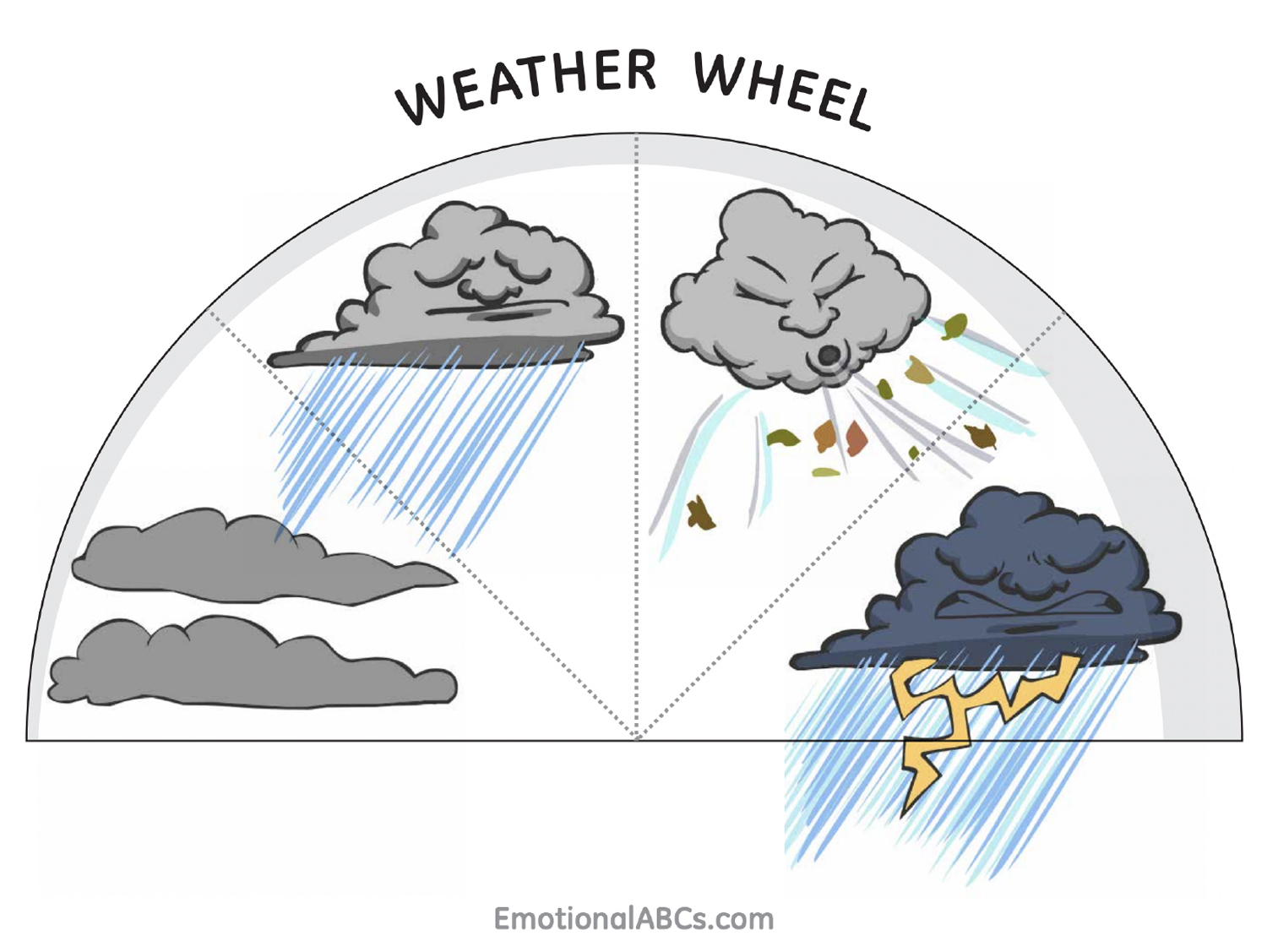
Children learn how to define an emotion, observe their own and others’ emotional responses, and use an expanded emotional vocabulary to tell stories.
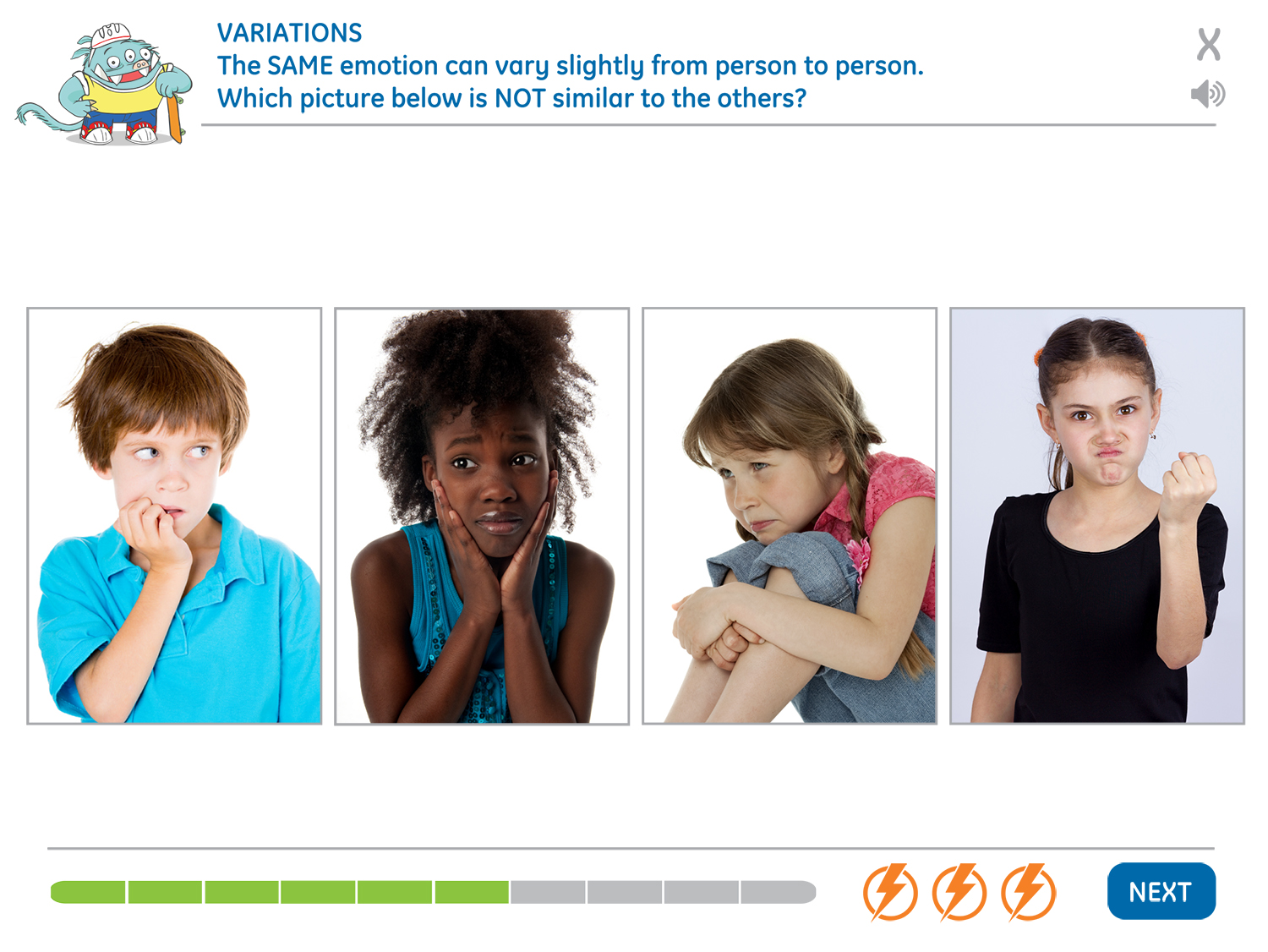
Students use non-verbal face and body language and sensations to interpret their own and others’ emotions. Also, students learn methods of purposeful breathing.
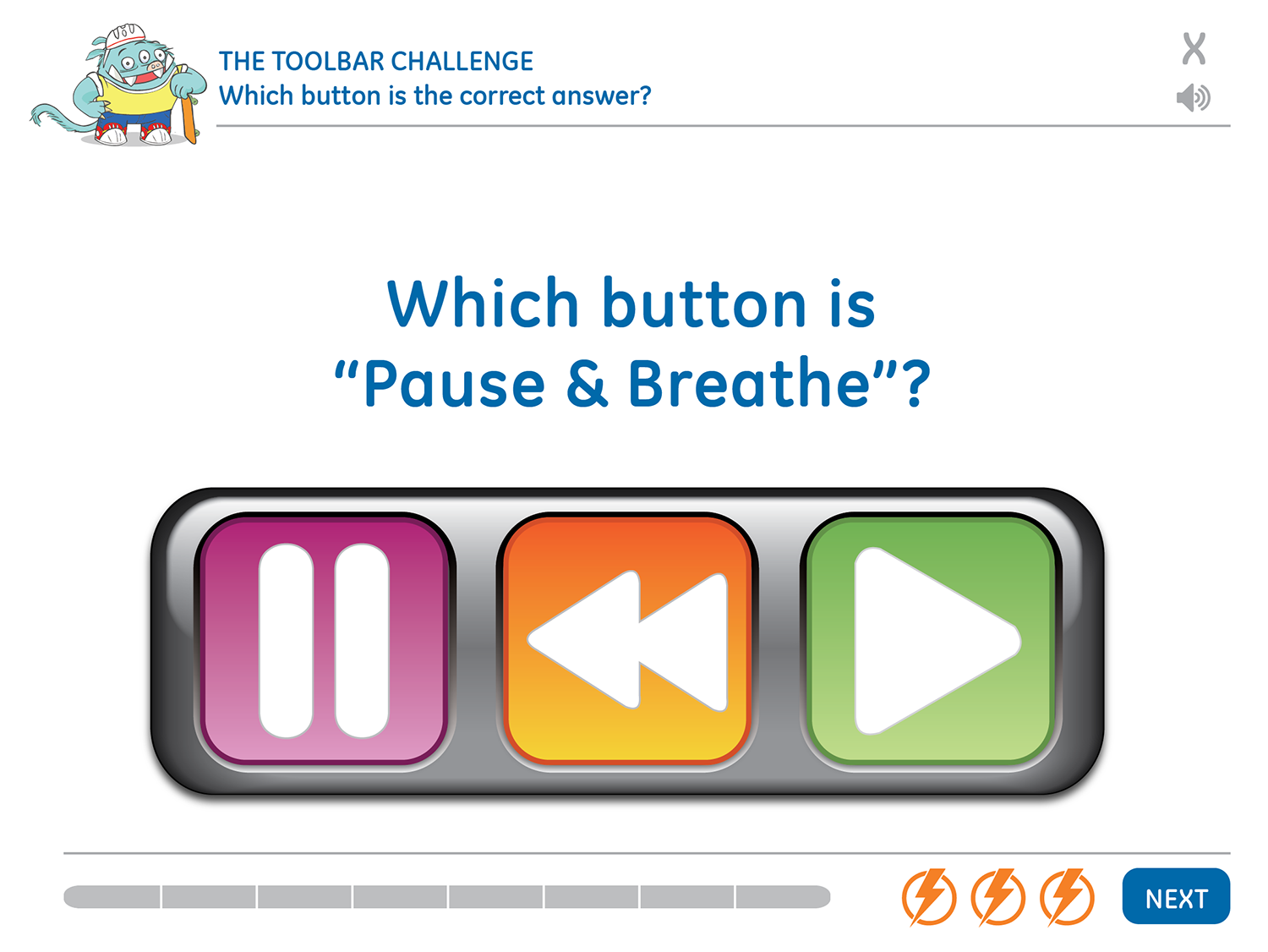
Students are introduced and learn how to use the self-management skills represented by the Emotional ABCs Toolbar.
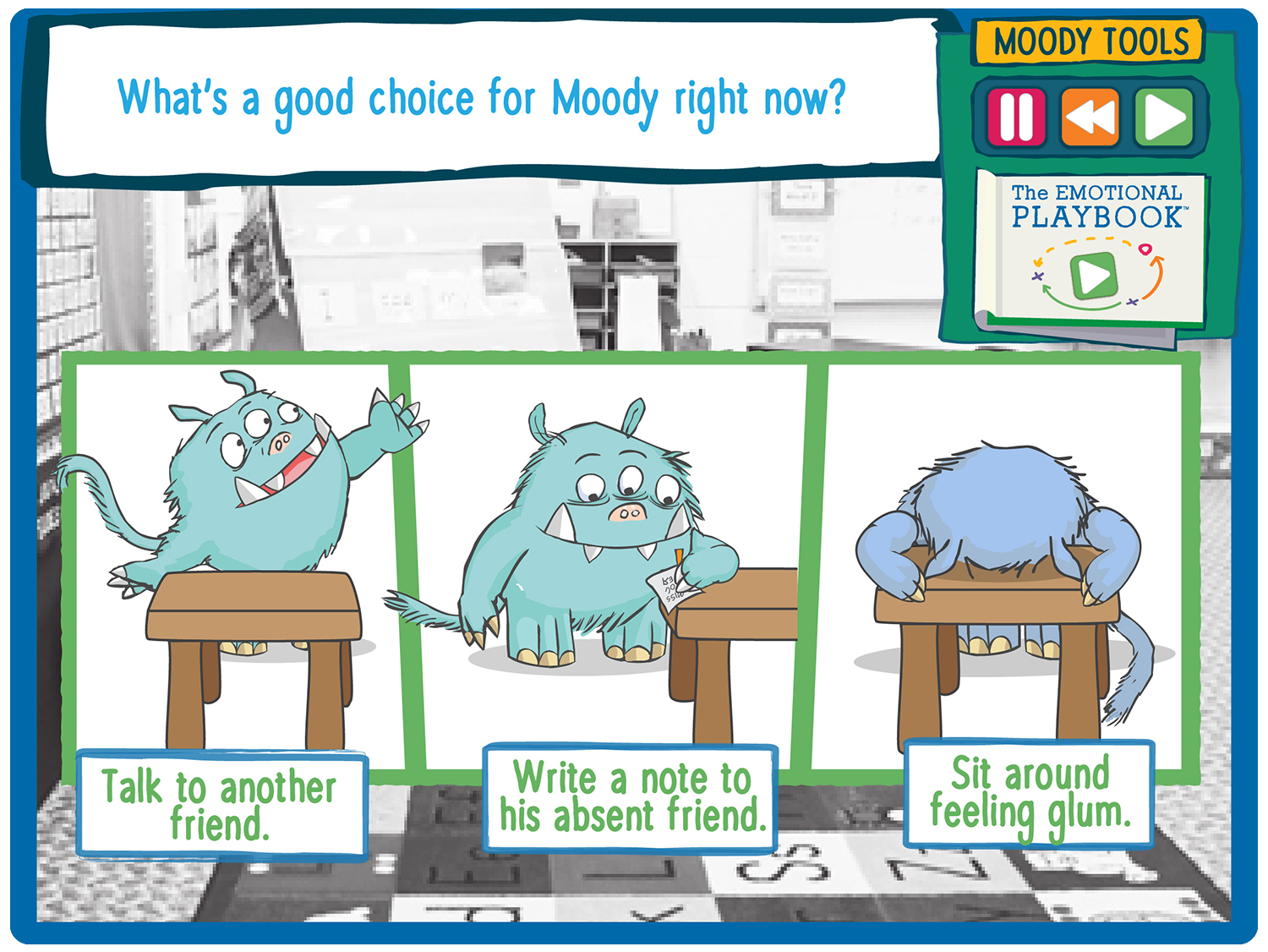
The Unit introduces the Playbook, which presents choices of action to use when trying to make responsible decisions.
Year 2 Curriculum Resource Examples
(* Click on the images below to see more.)
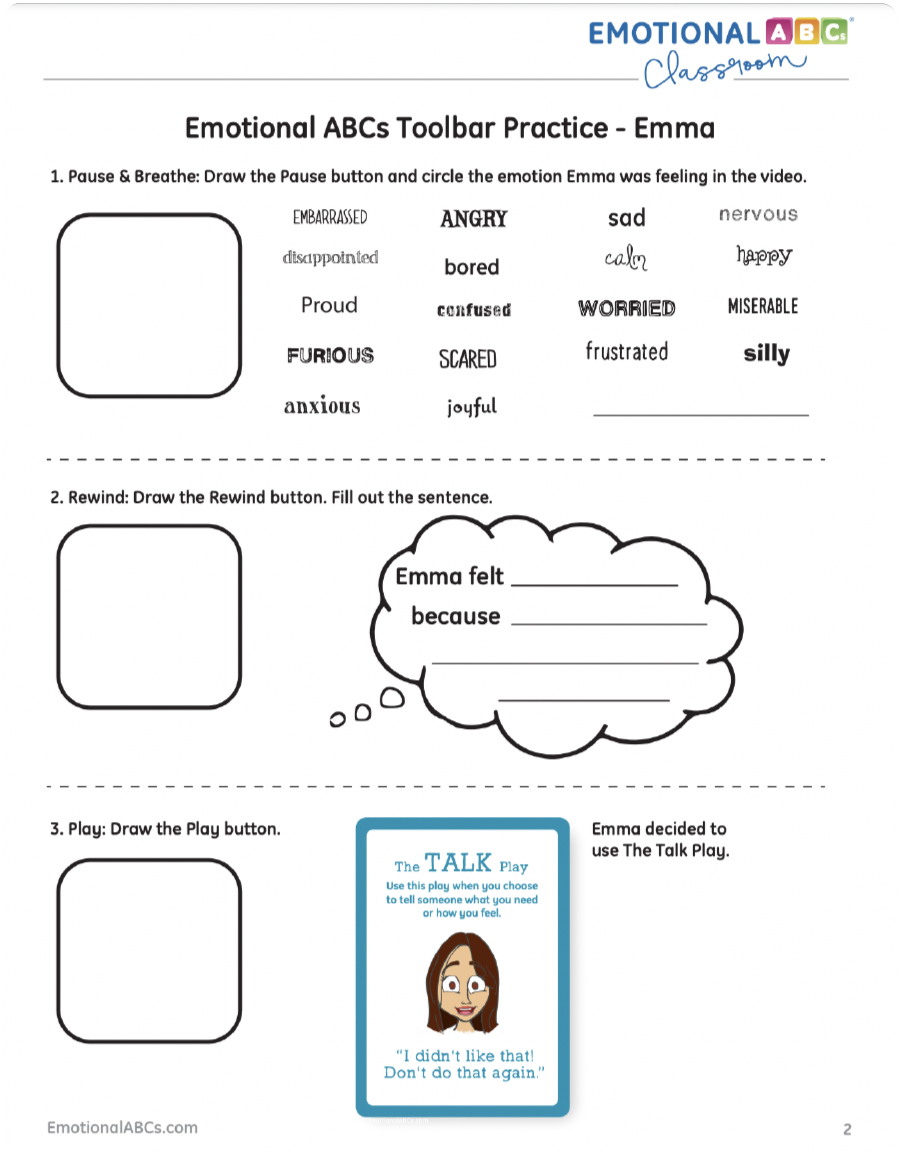
Unit A reviews and expands Year 1 emotional skills including the Emotional ABCs Toolbar, expanded vocabulary, and the Playbook.
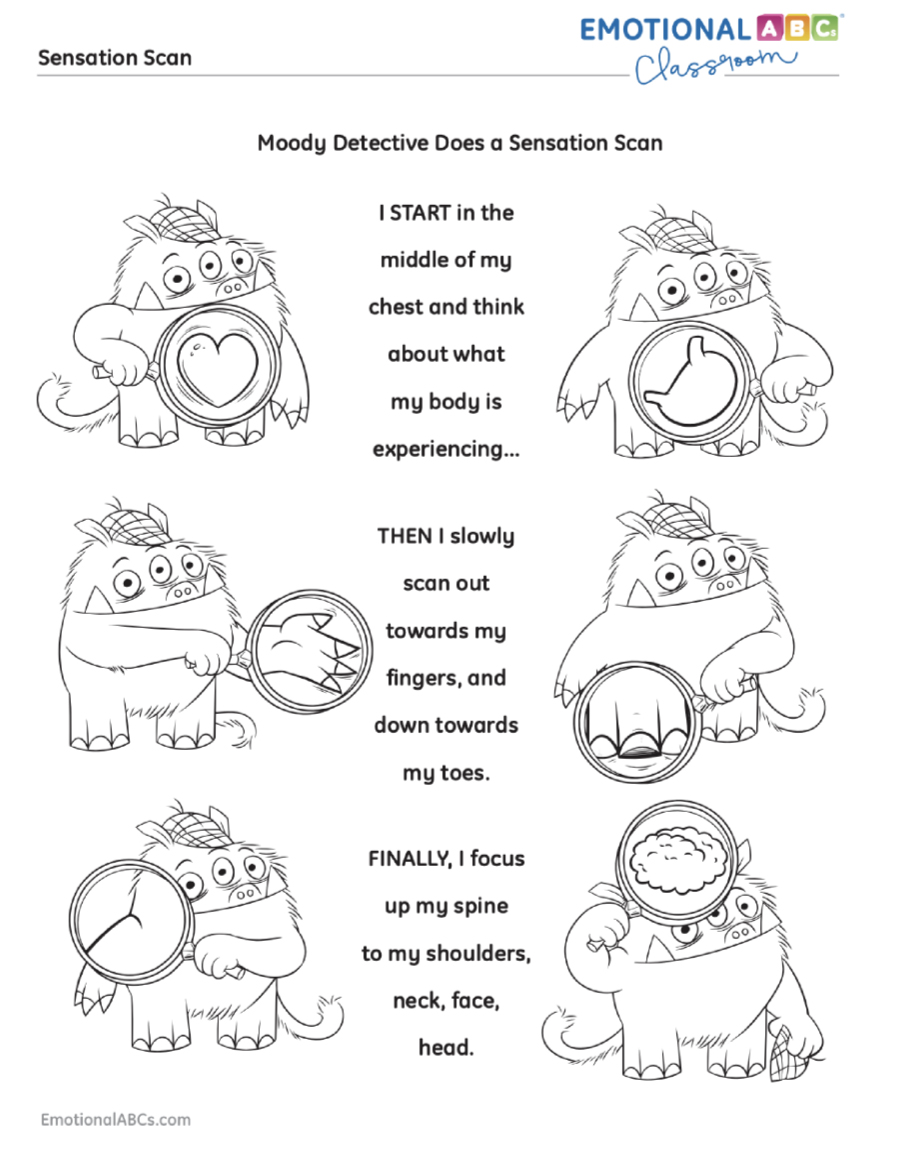
Unit B inspires students to independently shape their own identities and envision their most powerful selves by learning skills to create and maintain optimal mental, emotional, and physical environments.
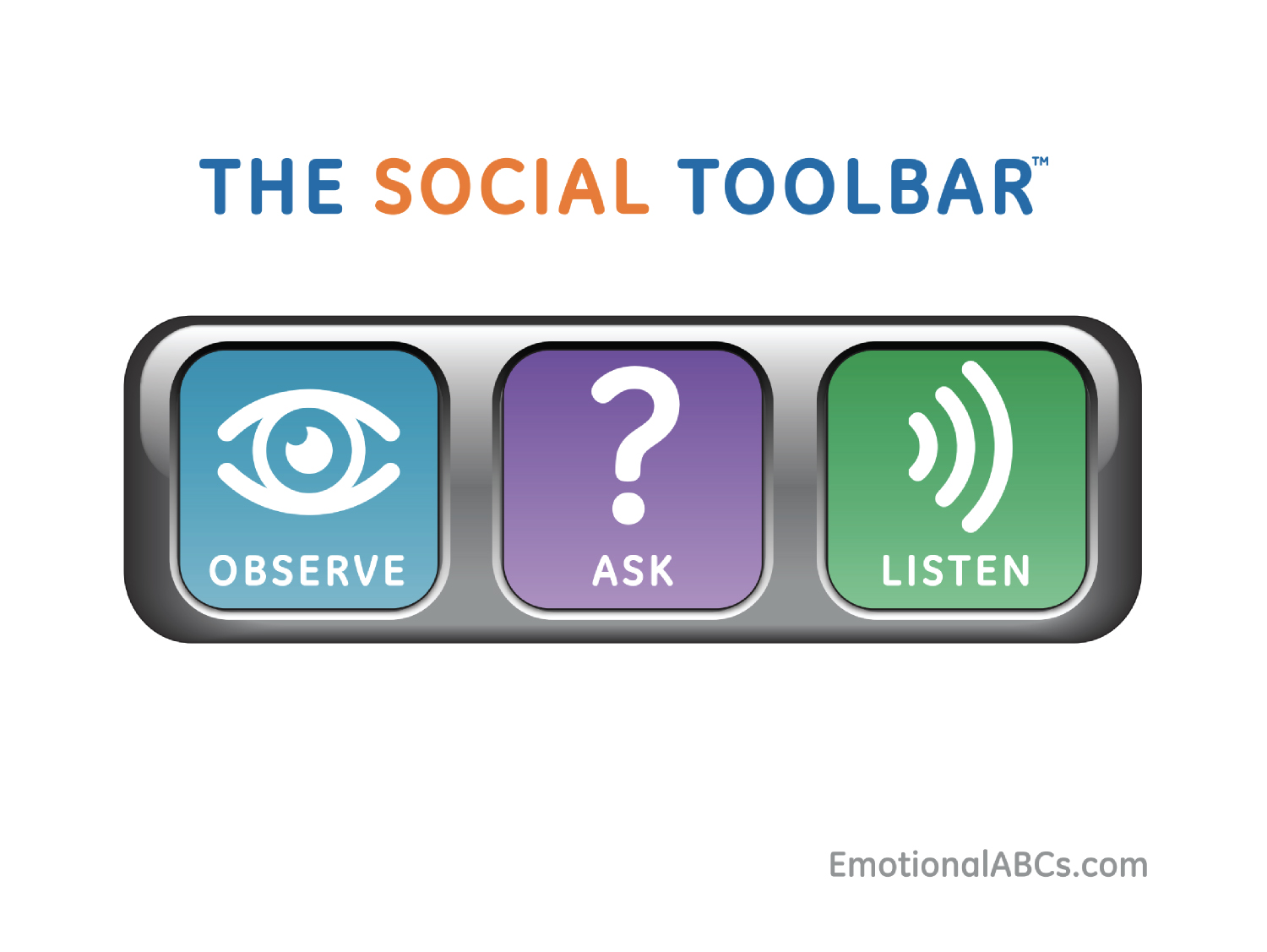
Students review Self-Management skills, observe the consequences of unthoughtful reactions, and focus on skills that help strengthen persistence and empathy.
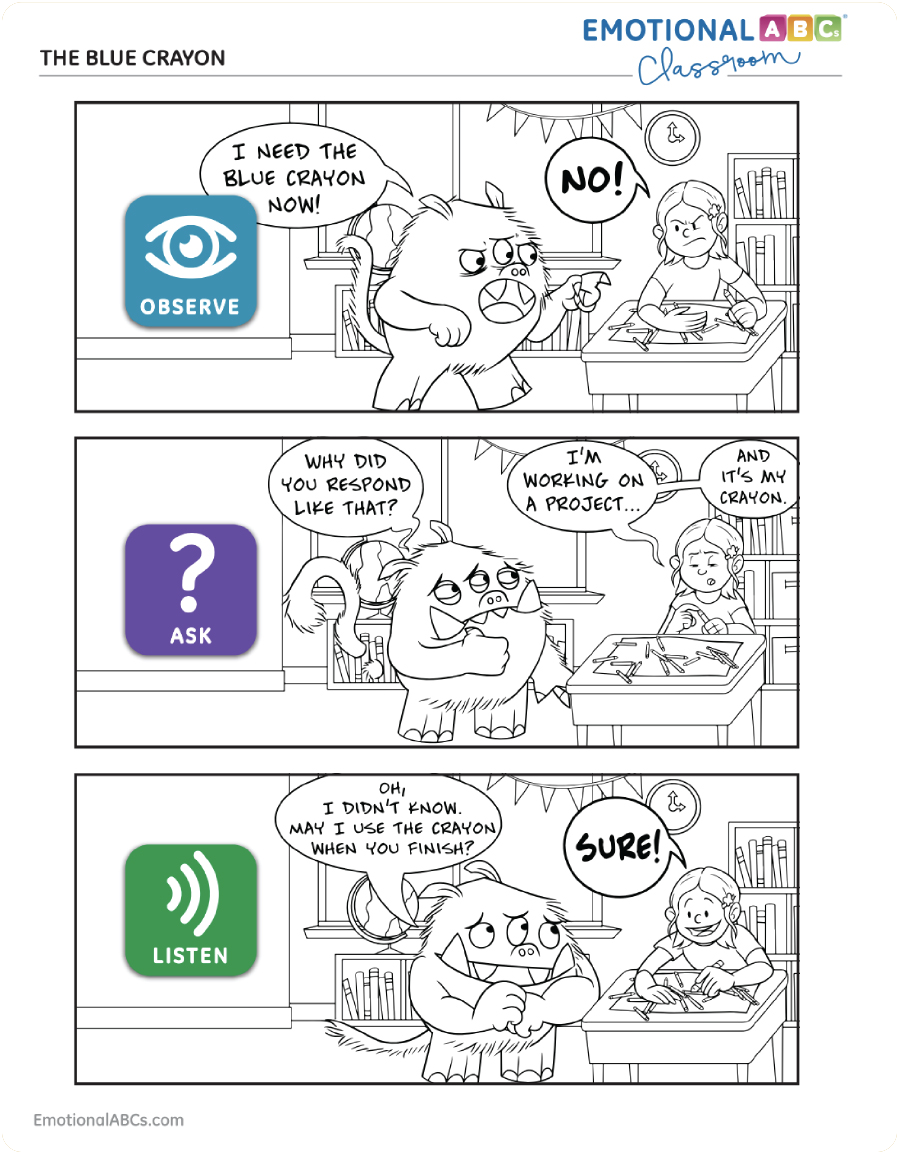
Students recognize their own power to shape their identities and communities while practicing self-management, imagination, persistence, and sensitivity to others’ emotions.
Year 3 Curriculum Resource Examples
(* Click on the images below to see more.)
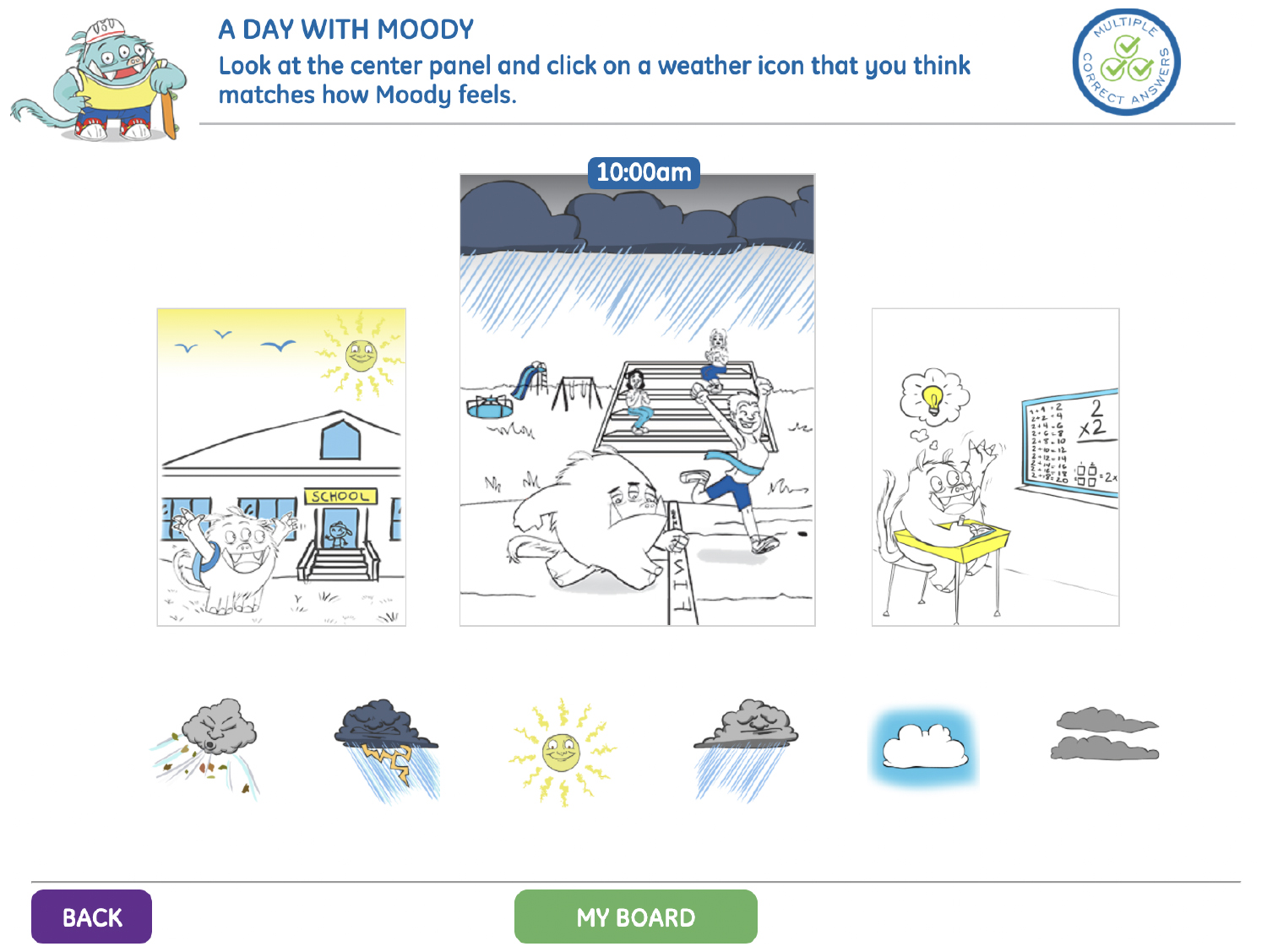
Unit A helps teachers evaluate students’ retention of Years 1 and 2 emotional and social skills.
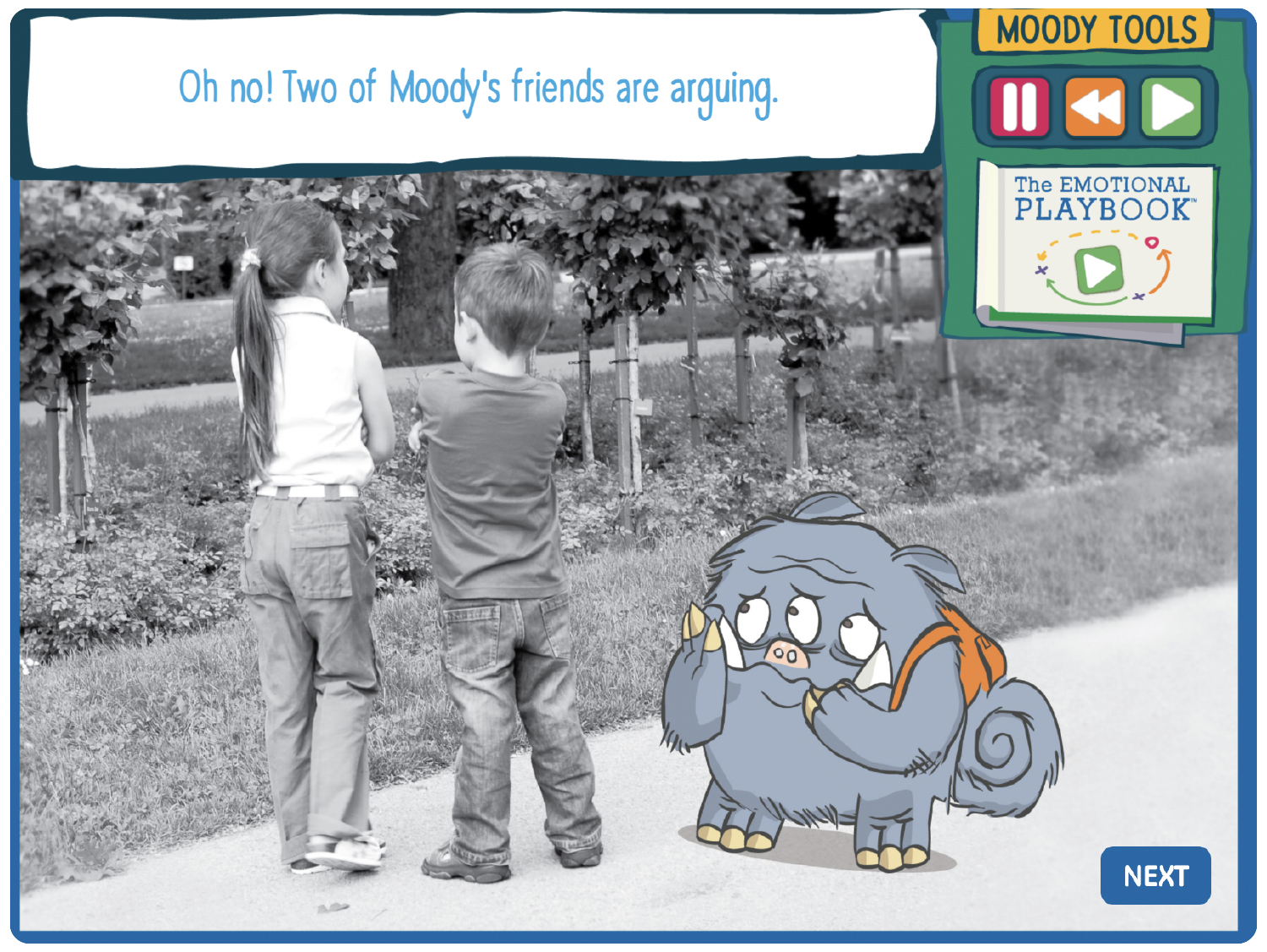
Knowing how to face inevitable setbacks and reframe perceived failures gives students the opportunity to develop a hopeful growth mindset.
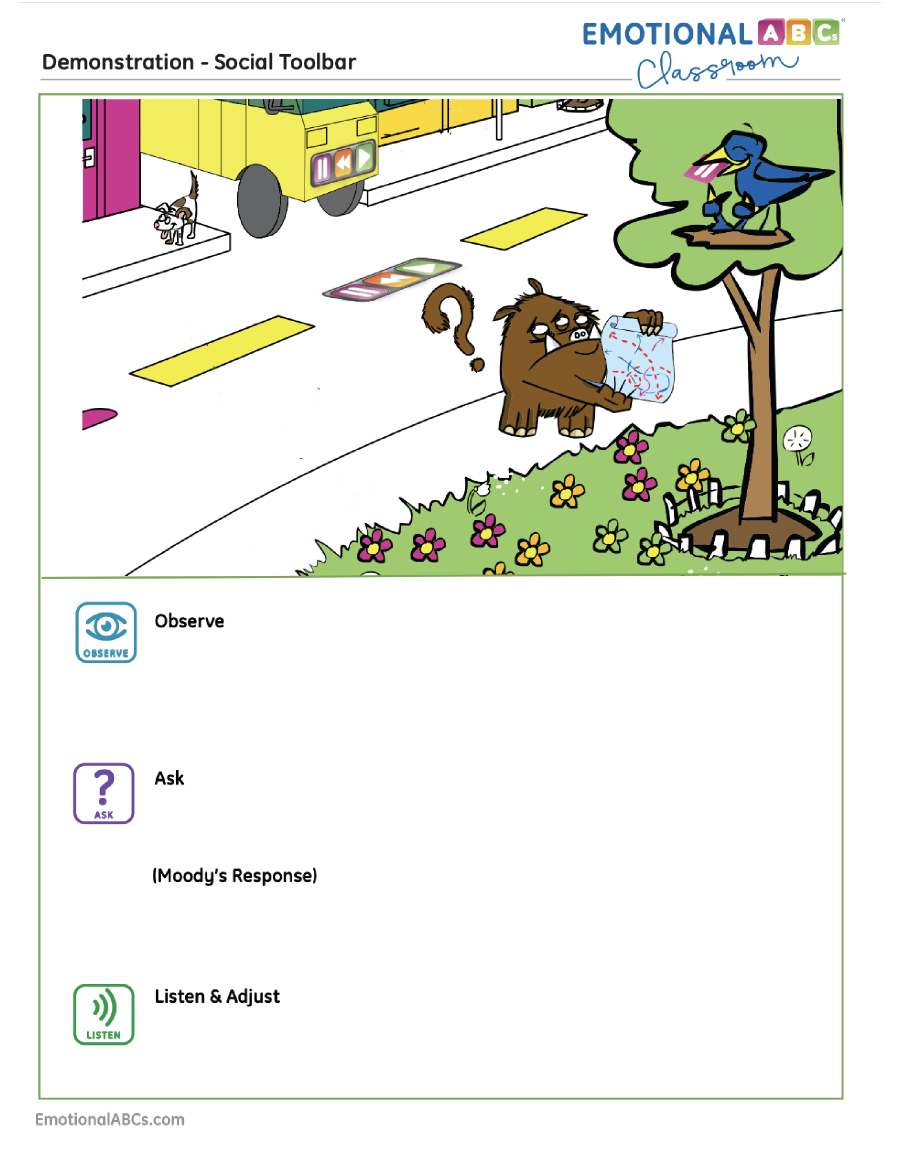
Students develop careful listening skills and learn the value of listening to someone else’s story.
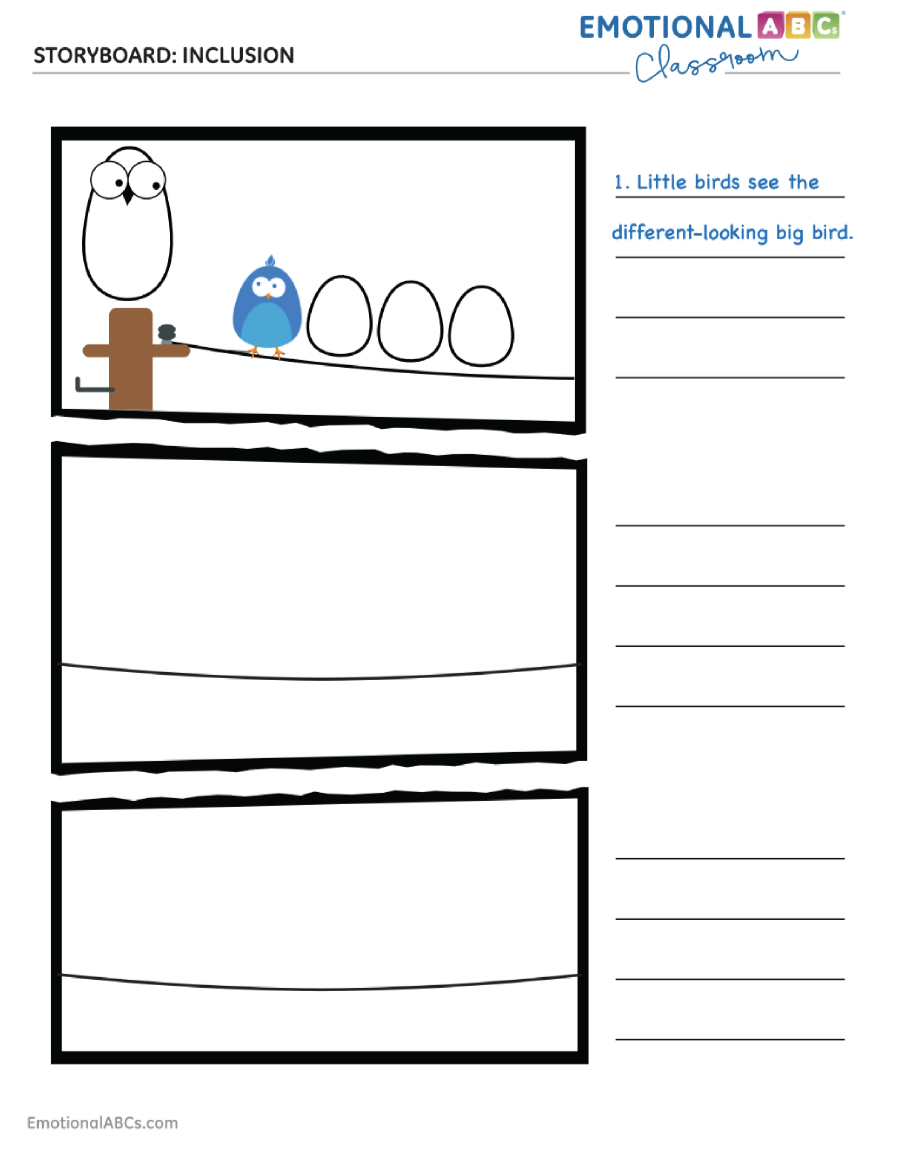
Previously learned skills can now support more complex social decision-making tasks such as building an inclusive community and learning how to cooperate with others for a common goal.
